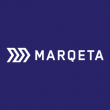Japan rises to blockchain challenge with new consortium
The name may not be catchy but “The Japan Bank Consortium to Centrally Provide Domestic and Cross-border Payments” has officially launched with 42 member banks.
As Banking Technology reported in August, SBI Ripple Asia, a joint venture between distributed ledger tech provider Ripple and SBI Holdings, announced that a Japanese consortium of 15 banks in a new network will use Ripple’s blockchain for payments and settlement.
It had anticipated about 30 member banks joining by March 2017, but it got plenty of responses from financial institutions, and so the consortium says it has been “finally launched” with 42 member banks.
Using Ripple, customers of the banks will get real-time domestic and cross-border payments, 365 days of the year. Participants include Bank of Yokohama, SBI Sumishin Net Bank (SBI Holdings owns part of it) and Mizuho.
The consortium says recent changes in customers’ behaviour and social lives have “resulted in more diverse payment needs”, such as 24-hour and real-time settlement and small-value settlement.
In addition, it says cross-border payment needs are also “changing considerably” because of a “borderless trend caused by cross-border e-commerce and Japanese companies’ expansion into Asian countries”.
The consortium will promote discussion, consolidate domestic and foreign exchange services, and build a 24-hour and real-time remittance infrastructure, and “will try to finish” its proof of concept (PoC) by next March to move forward its “commercial base”.
The consortium includes regional financial institutions and internet-only banks. Its secretariat consists of financial services firm SBI Holdings, with its head office in Tokyo.
The arena
The blockchain consortium space is looking lively.
London-based Nimbrix has just unveiled its new blockchain platform and the creation of an industry consortium with KPMG and Microsoft.
New York-based R3 recently made its blockchain platform’s code publicly available as it seeks to make it an industry standard.
In the US, CULedger, a collaborative effort among Credit Union National Association (CUNA), Best Innovation Group, the Mountain West Credit Union Association, PSCU and other industry partners are examining blockchain with a view to piloting applications.
San Francisco-based Linux Foundation has its Hyperledger Project; of which Russia’s Sberbank recently joined.











































